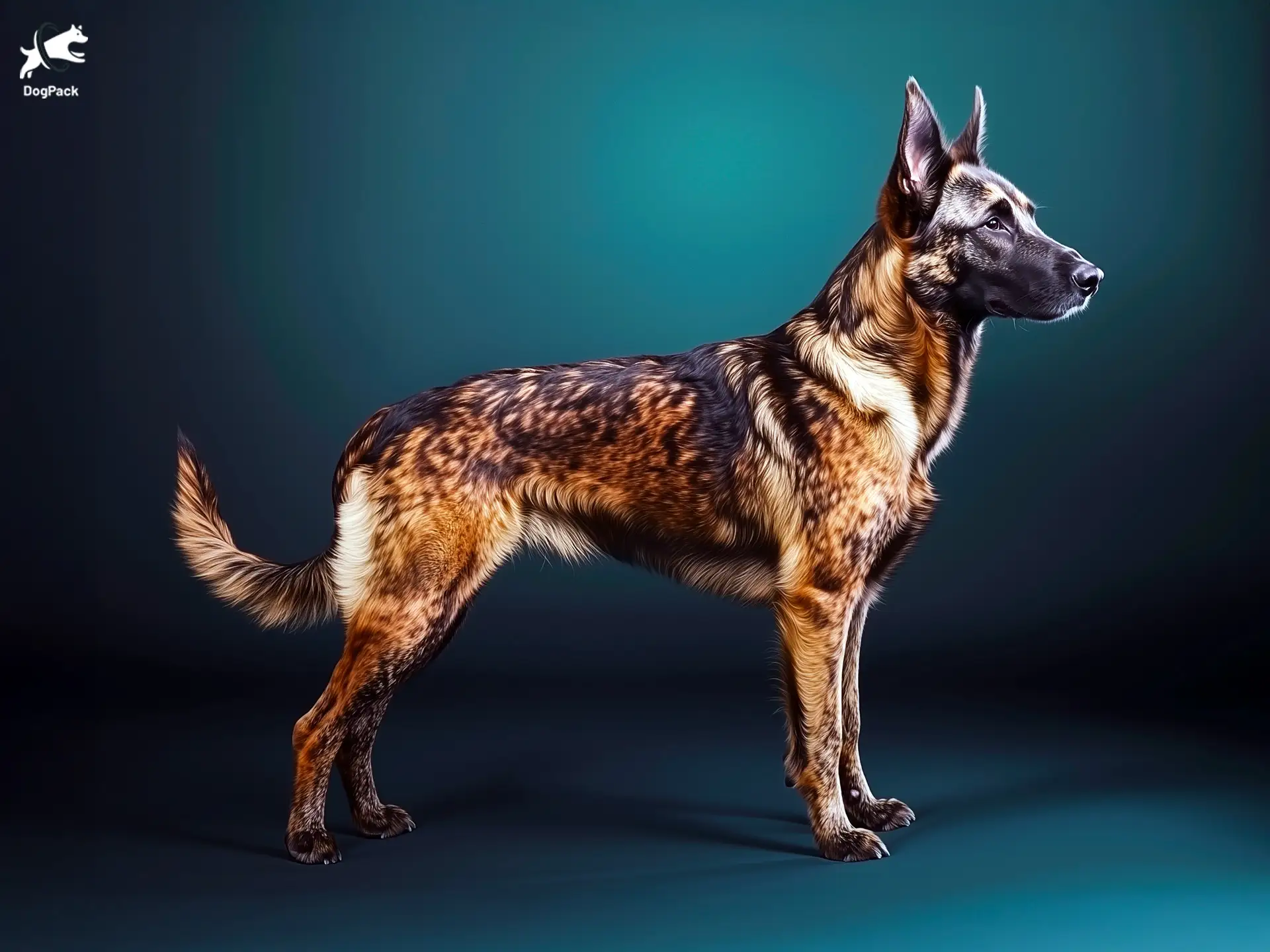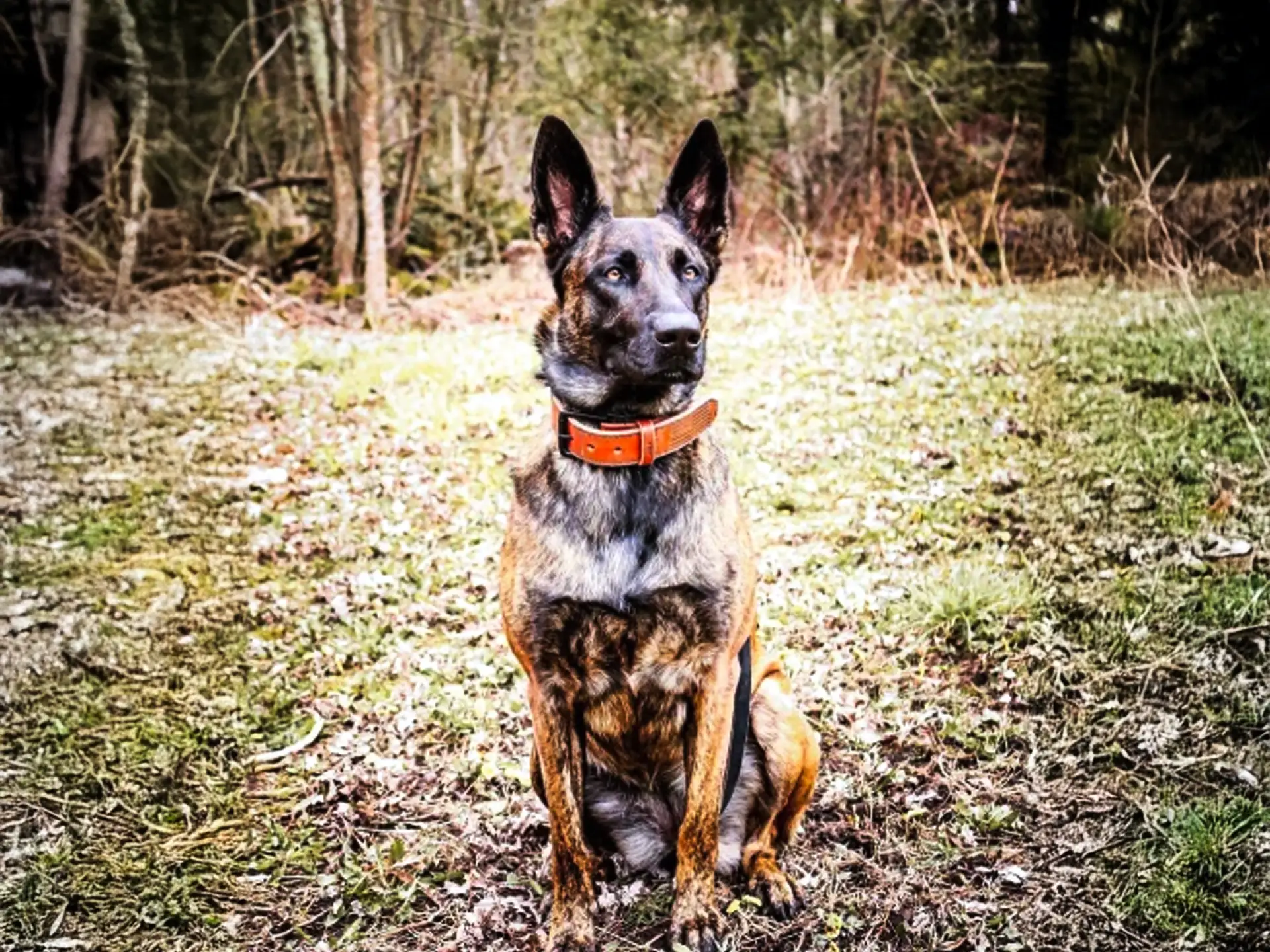Dutch Shepherd Dog Breed Info & Overview
The Dutch Shepherd, a rare and versatile breed from the Netherlands, is celebrated for its intelligence, loyalty, and agility. Originally bred for herding, this highly adaptable dog now shines in roles ranging from police work to being a devoted family companion. With its keen mind and boundless energy, the Dutch Shepherd is a truly special breed that thrives in active and engaged environments, offering both skill and affection.
Characteristics
Pictures
Breed History
The Dutch Shepherd is as Dutch as tulips and windmills, tracing its roots to the rural farms of the Netherlands. Originally bred to herd sheep and guard livestock, this versatile breed quickly became the farmer’s right-hand dog. And they didn’t stop at herding—they could pull carts, protect property, and even play babysitter to the children.
By the 19th century, Dutch Shepherds were widely valued for their work ethic and intelligence. Life on Dutch farms required a dog that could adapt to many tasks, from herding stubborn livestock to keeping a sharp eye on the homestead. But as industrialization rolled in, the demand for multi-purpose farm dogs like the Dutch Shepherd began to wane.
The breed faced near extinction during World War II, largely due to food shortages and the collapse of breeding programs. Fortunately, dedicated breeders rallied to revive this resilient breed, preserving its unique traits and ensuring that the Dutch Shepherd lived on as a loyal working dog and beloved companion.
Temperament, Personality
Dutch Shepherds are known for their loyalty and sharp minds, traits that make them devoted family members. They’re the type to stick close to their people, forming strong bonds with family and showering their loved ones with loyalty. If you’re looking for a Velcro dog, this breed is it!
With children, Dutch Shepherds are often gentle yet protective, making them excellent companions in active families. They’re up for just about any game and are patient enough to endure the high-energy play of kids—especially if introduced early on. They can be the perfect mix of playful friend and steadfast protector.
When it comes to strangers and other pets, Dutch Shepherds may be reserved at first. Their watchful nature can sometimes make them cautious, but proper socialization from a young age helps them warm up to new friends. Once they’re comfortable, they’re likely to accept others as part of their pack.
Physical Characteristics
Dutch Shepherds have a striking and athletic build that radiates strength and agility. With a balanced body that’s slightly longer than it is tall, they’re made for speed and endurance, allowing them to dash after sheep or take on agility courses with ease. These dogs are built for action!
The breed boasts three coat types—short, long, and rough—all displaying the signature brindle pattern, which ranges from rich gold to cool silver. This camouflage-like coloring was perfect for the fields, blending in with the natural landscape as they watched over their herds. It’s like their own built-in workwear.
Distinctive features include their alert, almond-shaped eyes that reflect intelligence and curiosity, and their perky, erect ears that stand at attention. With a tail that complements their streamlined appearance, the Dutch Shepherd has a balanced, athletic look that’s as practical as it is eye-catching.
Health Issues
Dutch Shepherds are known for their generally robust health, but like any breed, they can be predisposed to certain genetic issues. One of the primary concerns is hip dysplasia, a common condition that affects mobility over time. Regular vet visits and screenings help catch this early on, allowing for preventive care.
They may also be susceptible to elbow dysplasia and thyroid issues, which responsible breeders work hard to minimize. Regular exercise, a balanced diet, and careful weight management go a long way in keeping these agile dogs healthy and active.
To ensure long-term health, routine vet check-ups and a close eye on their physical condition are essential. Preventive care and maintaining an active lifestyle are key to enjoying a happy, healthy Dutch Shepherd for years to come.
Grooming Needs
Grooming a Dutch Shepherd is mostly about managing their coat, which varies based on type. For the short-haired variety, a weekly brush is usually enough to keep them looking sharp. Long-haired and rough-haired types will need a bit more TLC, especially during shedding seasons.
Spring and fall are shedding times, so be prepared for daily brushing during these periods to keep the fur tumbleweeds at bay. Not only does brushing keep their coat healthy, but it also strengthens the bond between you and your Dutch Shepherd—an added bonus!
Bathing is only required occasionally, every few months or as needed. Regularly check their ears, trim their nails, and brush their teeth to complete their grooming routine. A well-groomed Dutch Shepherd is not only a happier dog but also a cleaner addition to the home.
Exercise Requirements
The Dutch Shepherd is a high-energy breed, so if you’re ready for a jogging buddy, this is the dog for you! Aim for at least 1–2 hours of exercise each day to keep them mentally and physically engaged. These dogs are happiest when they have a purpose, so let them show off their athleticism.
Activities like jogging, hiking, and agility training are ideal for this breed, as they love a good challenge. Dutch Shepherds excel in dog sports like obedience, tracking, and herding trials, all of which tap into their natural instincts and provide mental stimulation.
Without enough exercise, Dutch Shepherds can become bored and may channel their energy into chewing or digging. Keeping them engaged with interactive play, puzzle toys, and plenty of exercise will ensure a happy and well-adjusted dog.
Training Tips
Training a Dutch Shepherd is a joy, thanks to their intelligence and eagerness to please. Positive reinforcement with treats, praise, and playtime works wonders for this breed. Consistency is the magic word—Dutch Shepherds are quick learners, but they need clear guidance to thrive.
Socialization from a young age helps Dutch Shepherds adapt to new environments, people, and pets. They tend to be independent thinkers, so setting boundaries early is key. Expose them to a variety of experiences, and you’ll have a confident, well-rounded companion.
Challenging their minds with advanced obedience, agility, or scent work keeps them engaged. They love having a job to do, so consider activities that tap into their herding instincts or test their problem-solving skills. With the right approach, they’ll shine in any training setting.
Nutrition, Diet
Feeding a Dutch Shepherd requires a high-quality diet that matches their energy needs. Protein-rich food supports their muscular build, while balanced nutrients keep them fueled for action. Depending on their activity level, an adult Dutch Shepherd typically needs 2.5 to 3.5 cups of dry food per day, divided into two meals.
Since this breed is prone to weight gain if overfed, portion control and monitoring their weight are essential. Consult your veterinarian for a diet plan tailored to your Dutch Shepherd’s specific needs, ensuring they receive the best nutrition for their active lifestyle.
Avoid overfeeding treats, as excess weight can impact their joint health. With the right diet and plenty of exercise, your Dutch Shepherd will stay in peak condition.
Adoption, Breeders
If you’re considering adding a Dutch Shepherd to your home, adoption is a wonderful option. Several rescue organizations specialize in rehoming this breed, helping dogs in need find their forever homes. Check out organizations like the Malinois and Dutch Shepherd Rescue or Saving Shepherd Rescue for adoptable dogs.
If purchasing from a breeder, research carefully to find one who values health and temperament. Reputable breeders will provide health clearances for both parent dogs, reducing the risk of inherited health issues. The Dutch Shepherd Club of America is a reliable resource for finding responsible breeders.
Whether you choose adoption or a breeder, meeting the parents and seeing the environment will give you a good sense of your future companion’s background and personality.
Family Pet?
Dutch Shepherds are loyal, loving, and excellent family pets for active households. They form strong bonds with family members and enjoy being involved in daily activities, from playtime in the yard to cozy evenings at home. They’re loyal and affectionate but also protective when necessary.
With children, Dutch Shepherds tend to be gentle and patient, but their high energy levels mean they’re best suited for families with older kids. Early socialization helps them adjust well to other pets, although supervision around smaller animals is a good idea given their herding instincts.
This breed thrives when it can be part of the family action. For those who love spending time outdoors and want a devoted companion, the Dutch Shepherd is a fantastic choice.
Right For You?
If you’re an active person who values intelligence and loyalty, the Dutch Shepherd could be the perfect fit. They’re happiest in homes where they have plenty of mental and physical stimulation, making them ideal for owners who enjoy training and engaging with their dog.
Before bringing a Dutch Shepherd home, consider your lifestyle. If you have the time for daily exercise, training, and socialization, you’ll be rewarded with a loyal and skilled companion. However, if you’re looking for a low-maintenance, low-energy dog, the Dutch Shepherd might not be the best choice.
Ultimately, Dutch Shepherds are a commitment, but their devotion and zest for life make them worth every bit of effort. For the right owner, this breed is an incredible partner.
Conclusion
Bringing a Dutch Shepherd into your life means welcoming a dog with boundless energy, loyalty, and intelligence. They excel as both working dogs and family pets, always eager to join in on the fun. If you’re prepared for the exercise, training, and love this breed needs, you’ll discover why Dutch Shepherds are cherished companions for life.
FAQs
-
Do Dutch Shepherds need a job to stay happy?
Yes, Dutch Shepherds thrive with purposeful tasks or jobs. They’re natural workers and benefit from activities like agility, obedience, or scent work to stay mentally and physically engaged, helping prevent boredom-related behaviors.
-
What’s the best way to introduce a Dutch Shepherd to new environments?
Gradual exposure is key. Dutch Shepherds adapt well but may need structured introductions to busy environments. Start with quieter settings, rewarding calm behavior, before gradually introducing them to louder or busier places.
-
How do Dutch Shepherds handle extended periods indoors?
Dutch Shepherds can stay indoors for limited periods, but extended indoor time without stimulation can lead to restlessness. Interactive toys, puzzle feeders, and brief training sessions help keep them mentally active when confined indoors.
-
Do Dutch Shepherds have specific dietary needs due to their activity level?
Yes, Dutch Shepherds often need a high-protein diet to support their energy demands. Active individuals especially benefit from diets that include balanced fats and complex carbs for sustained energy and muscle health.
-
What are some lesser-known challenges of owning a Dutch Shepherd?
Dutch Shepherds can be intense and independent-minded, which may surprise new owners. They’re highly intelligent and require consistent training, making them a better fit for experienced owners familiar with strong-willed breeds.
Breed Ratings
The Dutch Shepherd is highly intelligent, making training enjoyable and allowing them to excel in complex tasks and dog sports.
They are playful and enjoy interactive games, which helps in bonding and keeping them mentally stimulated.
With a high energy level, the Dutch Shepherd requires daily exercise and mental challenges to stay happy and healthy.
Shedding is moderate to high, especially during seasonal changes. Regular grooming helps manage loose hair.
They have a strong prey drive due to their herding background, so supervision around small animals is advised.
Grooming needs vary by coat type, but regular brushing is necessary. Not the easiest, but manageable with routine.
Highly trainable due to their intelligence and eagerness to please. They respond well to positive reinforcement methods.
Dutch Shepherds prefer company and may develop separation anxiety if left alone for long periods.
They are moderately vocal and may bark to alert their owners but are not excessive barkers.
Low drooling levels make them relatively tidy compared to other breeds.
Can be friendly with other dogs if socialized early, but may exhibit territorial behavior without proper training.
Generally healthy with few breed-specific issues, but regular vet check-ups are important for maintaining good health.














